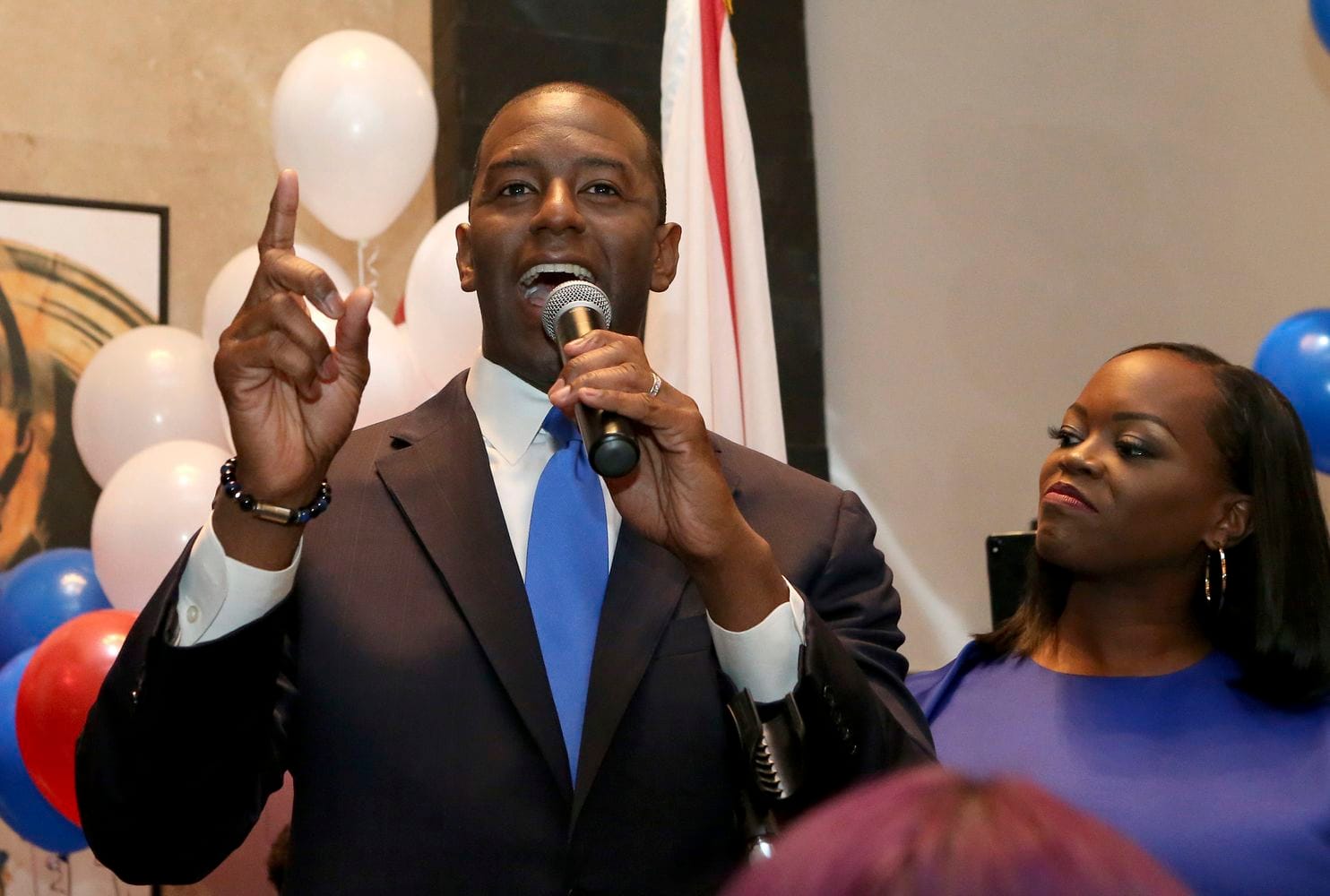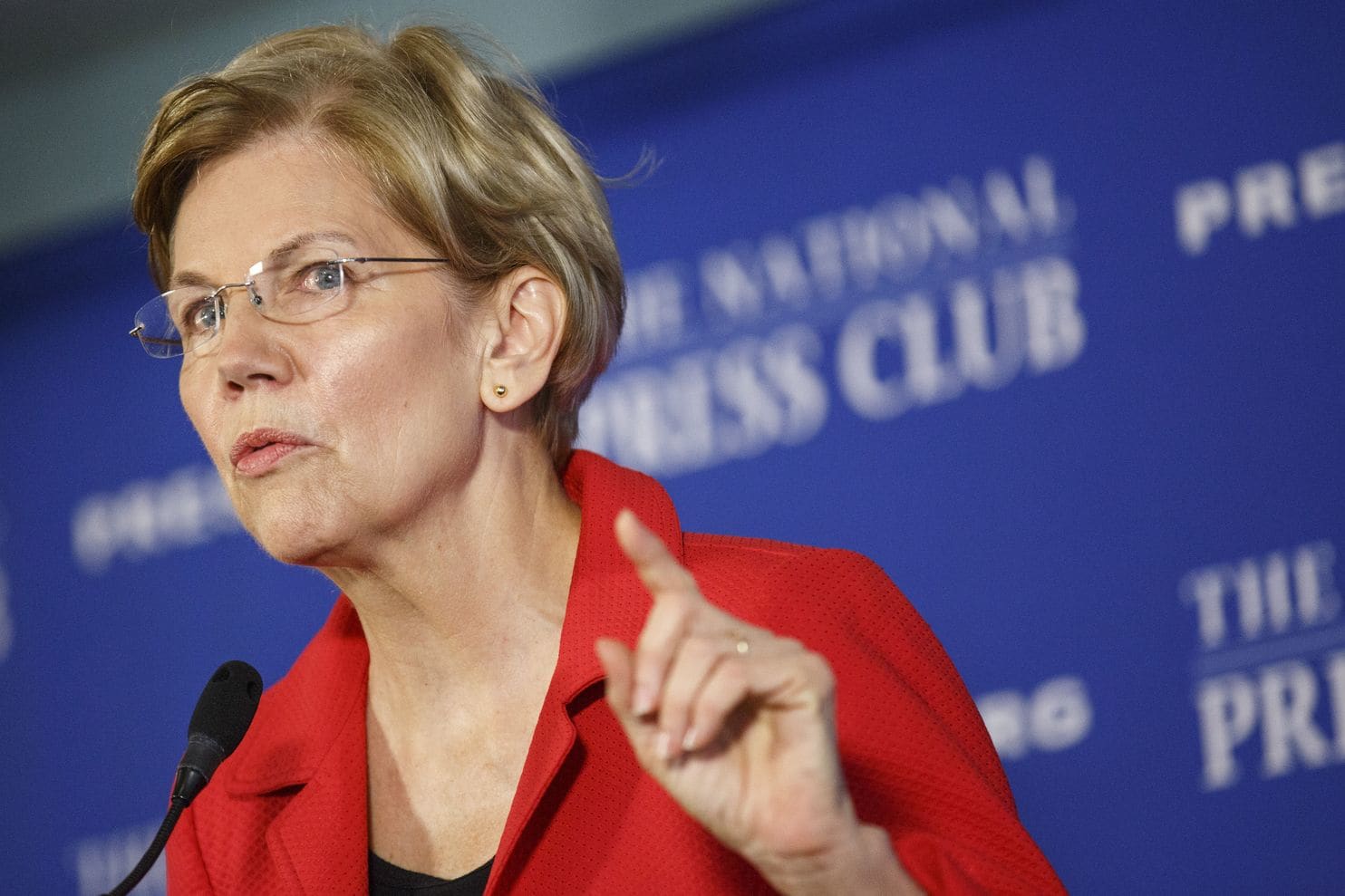
Elizabeth Warren has bold ideas about how to drain the swamp
Sen. Elizabeth Warren (D-Mass.) at the National Press Club in Washington on Aug. 21. (Joshua Roberts/Bloomberg News)
President Trump is likely to be remembered as running the most corrupt administration in history. But Washington corruption didn’t begin two years ago. Pervasive, bipartisan and blatant,corruption is business as usual, exemplified by the hours legislators spend each day dialing well-off donors for dollars, by the evening soirees where lobbyists befriend legislators, and by the proliferation of high-priced “expense account restaurants” and million-dollar condominiums in the nation’s capital. Americans know the rules are rigged for the rich and the powerful. Trump campaigned on the pretense that his money made him independent, but that was just another lie.
Now Sen. Elizabeth Warren (D-Mass.) has released a reform bill that, if passed, is bold enough to begin cleaning up the Beltway cesspool’s stench. She hasn’t offered transparent half measures — such as President Bill Clinton’s gesture toward “reinventing government” — or perverse evasions such as Newt Gingrich’s term limits. Warren doesn’t pretend that Trump was the sole problem. Her Anti-Corruption and Public Integrity Act — like Medicare-for-all, tuition-free college and the emerging jobs guarantee — defines a central plank in the sweeping reform agenda that insurgent progressives are pushing into the political debate. Taking on corruption is a cause that will be a centerpiece of the next presidential political campaign.
Introducing the bill, Warren summarized reality, “Our government systematically favors the rich over the poor, the donor class over the working class, the well-connected over the disconnected. This is deliberate, and we need to call it for what it is — corruption, plain and simple.”
Warren’s bill would strike directly at the heart of this problem. It “padlocks the revolving door” between jobs in government and in lobbying. It bans top elected or appointed federal officials from becoming lobbyists after they leave office — for the rest of their lives. It bans any corporate lobbyist, or any executive of a company found guilty of breaking the law from taking a job in the federal government for six years. It outlaws the “pre-bribes” — the golden parachutes that banks and companies give executives who are headed into government, such as the more than $280 million that Goldman Sachs gave Gary Cohn when he left to become Trump’s chief economic adviser. (As Warren noted, Goldman got an amazing return on its investment: Cohn then helped “quarterback a tax package that included giveaways worth just over a quarter of a billion to Goldman — in the first quarter of 2018 alone.”)
Warren’s bill ends corporate lobbying as we know it. Warren calls for banning Americans from getting paid to lobby for foreign governments — period. It would prohibit lobbyists from writing campaign checks or giving personal gifts to anyone running for or holding federal office. She would slap a tax on corporations that gear up lobby campaigns that cost more than $500,000. This would be complemented by her separate bill, the Accountable Capitalism Act , which would require the largest corporations to take all stakeholders into account, empower workers to elect 40 percent of corporate boards, and gain approval of three-fourths of the board before the corporation can use money for political purposes.
And, of course, Warren goes after the obvious personal conflicts of interest which Trump and his appointees have made infamous, banning elected officials, Cabinet secretaries, federal judges and other senior government officials from owning or trading in individual stocks. Her bill also requires Supreme Court justices to adhere to the same ethics rules of all federal judges. (Most people would be surprised to learn they don’t apply already.) The bill would set up an independent office to police and enforce all of this.
Robert Weissman, the president of Public Citizen, hailed Warren’s “sweeping legislation,” noting that while “no single reform or even any single set of reforms can solve this problem,” Warren’s bill “would peel away layers of corruption.” Critics on the right, of course, immediately dismissed it as an example of unworkable “big government.” Pundits immediately noted that it had no chance of reaching the Senate floor, much less passing.
It is easy to be cynical. But Warren is addressing a cause that is utterly vital for a functioning democracy. Citizens want government to work for working people. Voters need government to be efficient and clean. People need to be able to trust it. Those who support progressive reform have the biggest stake in cleaning the stables, cracking down on the corruption, and making it accountable. Just like Medicare-for-all, tuition-free college or a jobs guarantee, it will take an active citizens’ movement to take back government from the big money and entrenched interests. Few would bet the house on the prospect, but people are looking for change. Trump’s grotesqueries are exposing just how deep the corruption runs. Leaders such as Warren and Sen. Bernie Sanders (I-Vt.) are showing that there are real alternatives and are rousing people to act. We may end up surprising ourselves.

